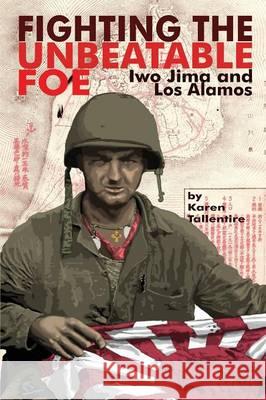Fighting the Unbeatable Foe: Iwo Jima and Los Alamos » książka
Fighting the Unbeatable Foe: Iwo Jima and Los Alamos
ISBN-13: 9781478742067 / Angielski / Miękka / 2015 / 196 str.
Bill Hudson hoped he'd see some action before World War II ended. He was a good swimmer, could shoot, and enjoyed explosives, so the United States Marine Corps put him through an early version of SEAL training. Then they gave him a gun, made him an infantryman, and spent months training him to invade an island: Iwo Jima. The island, they told him, would be easy to take. It was fewer than ten square miles and had been bombed for weeks. After quickly taking Iwo Jima, the Marines would move on to Okinawa, setting the stage for the coming invasion of Japan. Hudson landed with the first wave of invading troops. He thought he was prepared for his first day of combat. Nobody was prepared for the Battle of Iwo Jima, a battle unrivalled in the history of the Marine Corps. The Marines had overwhelming numbers, but the Japanese were prepared. Watching from caves, tunnels, and mines, the Japanese laid their traps, resolved to die rather than surrender. Each one vowed to take ten Marines with him. As Hudson and thousands of his fellow Marines invaded the apparently barren island and struggled across Iwo Jima's coarse, loose volcanic beach sand, a flare went up . . . and the Japanese opened up with everything they had. Every Marine on the beach was a target. Amid the noise, smoke, death, and destruction of that first day, Hudson's company lost all of its officers. The battle didn't end there. There was a second day and a third day and a week and another week. The Marines moved forward at the pace of a snail. Generals and admirals kept declaring the battle over and the island secure, but the Japanese shooting at Hudson disagreed. Battle continued for over a month. Hudson swiftly discovered that battle was not as it appears in movies and adventure books. Battle was work, gruesome and difficult work, exhausting in every way. Yet he knew there would be an end to the battle, and he hoped to live to see it. Hudson learned not only how to kill, but also how to survive and lead others. He learned the difference between courage and stupidity. His sergeant was a living example of the uncommon valor Iwo Jima was famous for, and his battalion commander received the Medal of Honor. But his enemy also acted fearlessly. To Japanese soldiers, life was unimportant compared with victory. They had an unconquerable fighting spirit and couldn't be beaten, only killed. This is Hudson's story. This is war-war as his generation experienced it. War was not an occasional job for volunteers; it was the goal of his life for the full -duration of national emergency.- War was a life and death struggle of soldier against soldier, nation against nation. Sacrifices had to be made, sacrifices that may seem senseless to generations raised in easier decades. Through his story, Hudson explains these sacrifices. He speaks to those who are the age he was in World War II. He shows them the realities of a war in which both sides find they are fighting an unbeatable foe.











